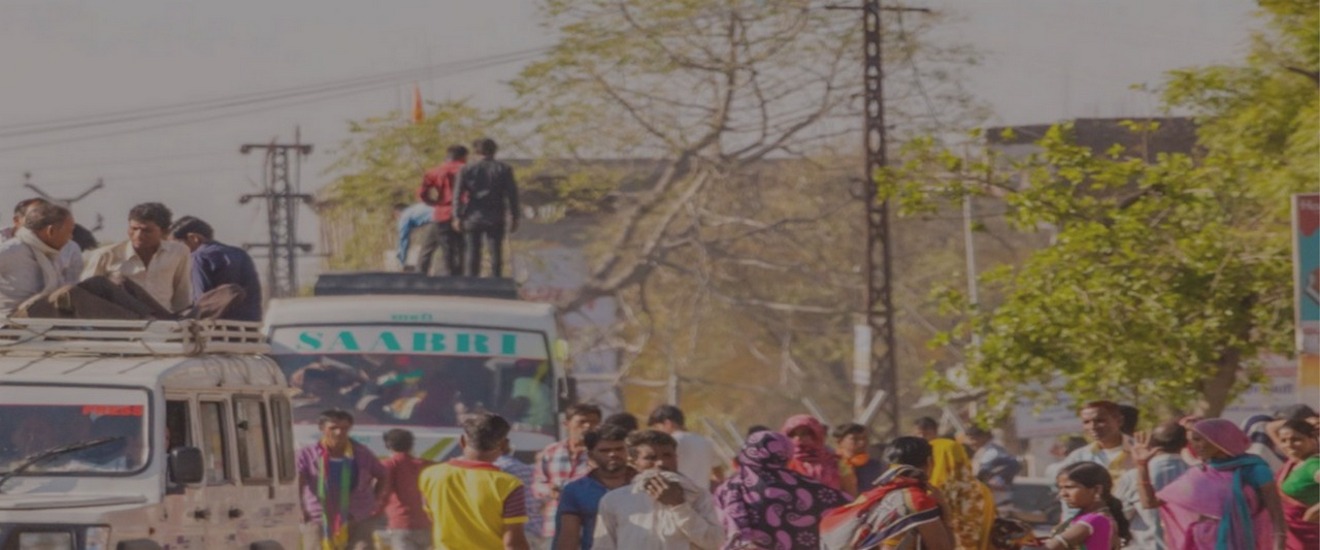Analysis
COVID Coverage: Migrant Labourers June 29th 2021
Judgment and Directions of the Court to alleviate the situation of migrant labourers during the pandemic

On June 29th 2021, Ashok Bhushan and MR Shah JJ delivered their judgement in this case.
In its judgement, the Court noted that the onset of the second wave had put the migrant workers in the situation they were in March 2020. Observing that no Court intervention was required in arranging transportation for migrants in the second wave, the Court directed its attention to seven concerns.
1. Dry Ration to Migrant Workers
The Court observed that food security has been a global concern lately. It held that the right to life under Article 21 includes the right to dignity, and hence, the right to basic food and nutrition. Accordingly, it expressed displeasure at the Union and State governments for failing to provide information about concrete steps taken by them to ensure two meals a day to all migrant workers, irrespective of location and registration under the National Food Security Act, 2013. It emphasized that supplying ration was the Centre’s responsibility, and distribution was the responsibility of the States. Since the State governments had already accounted for the number of migrant workers in the country during the first wave, the Court saw no reason for continued delays in distribution of ration. The Court ordered State Governments to bring appropriate schemes to deliver dry rations to all migrant workers, even if they did not have ration cards. Such schemes must be implemented by July 31st 2021. The Court also directed the Union Government to meet any demands for additional supply of dry ration made by the States to implement their schemes.
2. One Nation, One Ration Card
The Court noted that the Centre’s “One Nation, One Ration Card” scheme would be beneficial to migrant workers as it would enable them to claim ration supplies under various schemes at Fair Price Shops all over the country. The fact of their migration for work would not lead them to lose food security. As such, the Court pointed out that the Centre had approved additional funds for any state that required it to expeditiously implement the scheme. Even so, Solicitor General Tushar Mehta argued that some states including Delhi, Assam, Chhattisgarh and West Bengal are yet to install electronic point of sale machines in fair price shops for the implementation of the scheme. Noting that this was a welfare scheme meant to aid the most marginalized sections of society, the Court directed all State governments to complete its implementation by July 31st 2021.
3. Coverage of Rural and Urban Population under National Food Security Act, 2013
The Court highlighted that the last estimation of the State-wise number of beneficiaries under the National Food Security Act, as required by Section 9 of the Act, was done in 2011-2021. Section 3 mandates that the Center determine allocation of ration to States based on this estimation. The Court ordered the Central government to conduct a fresh estimation, bearing in mind that the number of beneficiaries, and the corresponding State-wise requirement of ration, is bound to have increased in the last ten years.
4. Inter-state Migrant Workmen (Regulation of Employment and Condition of Service) Act, 1979
The aforementioned Act was enacted to prevent migrant workers from being exploited by employers and middle-men. It guarantees safe working conditions, journey allowance and other facilities to migrant workers. The Act is a welfare legislation that requires employers whose businesses run because of migrant labour to register themselves with State government authorities, and gain licenses to continue functioning. The Court noted that most States had failed to implement this welfare legislation adequately. Most states did not have proper licensing systems set up, and resultantly, did not have adequate information about all migrant workers in their territory. The Court directed States to fulfill their obligations under this Act.
5. Registration of Unorganized Workers
Despite being directed to do so in past orders, the Ministry of Labour and Employment has failed to provide modules to State Governments to complete registration of unorganized sector workers. The Unorganized Workers Social Security Act, 2008 provides for a method to deliver benefits based on registration. The Court pointed out that the Ministry of Labour and Employment has been unable to launch the portal for registration under the National Database for Unorganized Workers, despite being directed to do so as early as 2018. In this situation, until the database is launched and used by all States, the States’ claims of benefit distribution will remain only tall claims. Accordingly, the Court directed the Ministry to launch the portal by July 31st 2021, and file a report on its working within a month from its launch. It also directed States to begin registering unorganized workers under this database by July 31st 2021.
6. Community Kitchens
The Court noted that even though most industries have started to resume functioning after the easing of lockdown restrictions and employment opportunities have become available to migrant workers, many are still without livelihood and hence struggling to arrange two meals a day. So, it directed States to continue to run community kitchens until the pandemic continues. The community kitchens must be in prominent areas that migrant workers frequent. The existence of such kitchens must also be adequately advertised for these workers’ knowledge.
7. Direct Bank Transfers to Migrant Workers
The Court observed that the right of workers under different categories to claim direct bank transfers from State Governments arise from specific schemes promulgated by the States. Accordingly, the Court will not intervene in the matter of direct bank transfers. The Court made a limited comment to inform migrant workers that they may rightfully approach State governments for direct bank transfers if they are entitled under any existing schemes.
Resources
